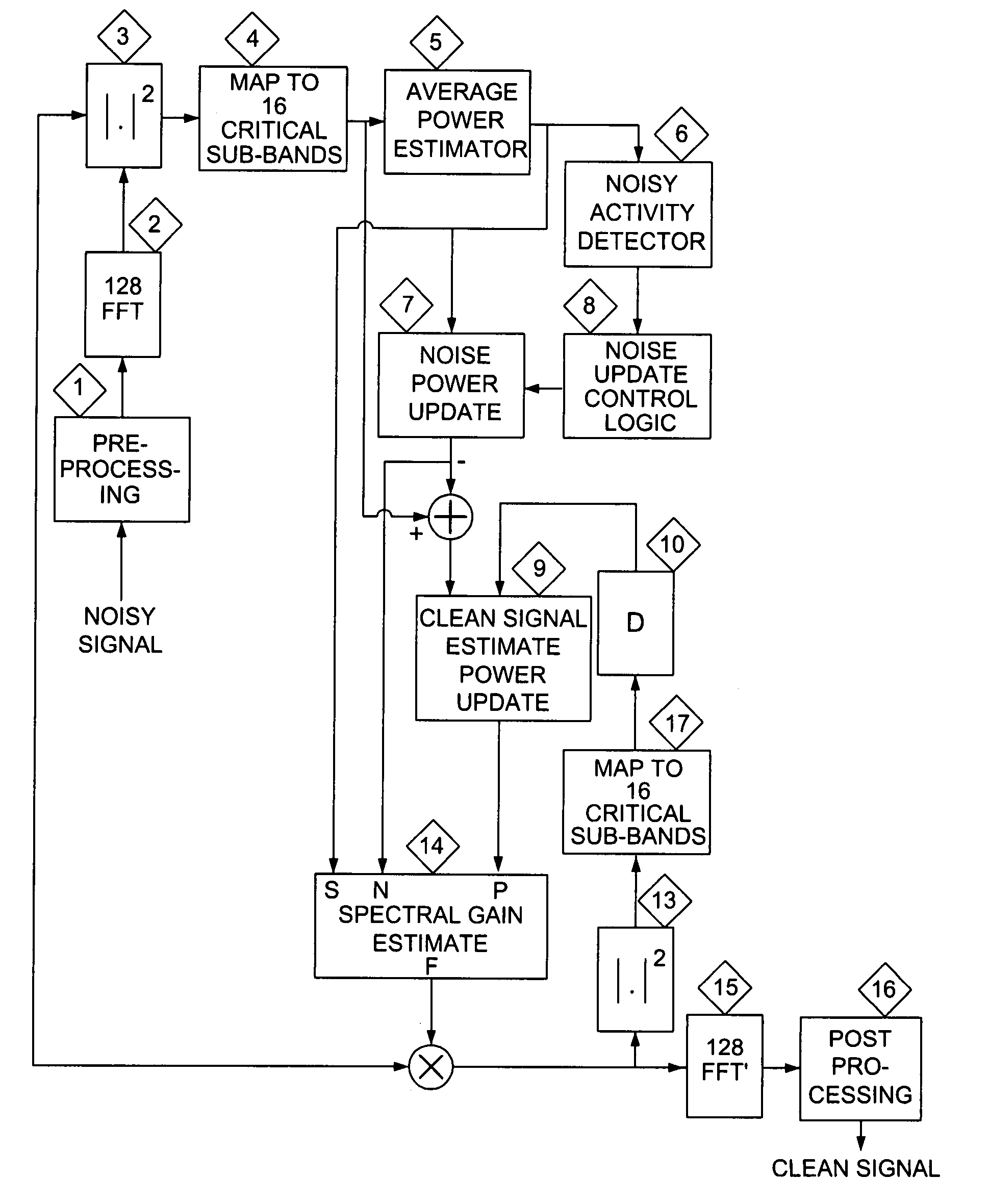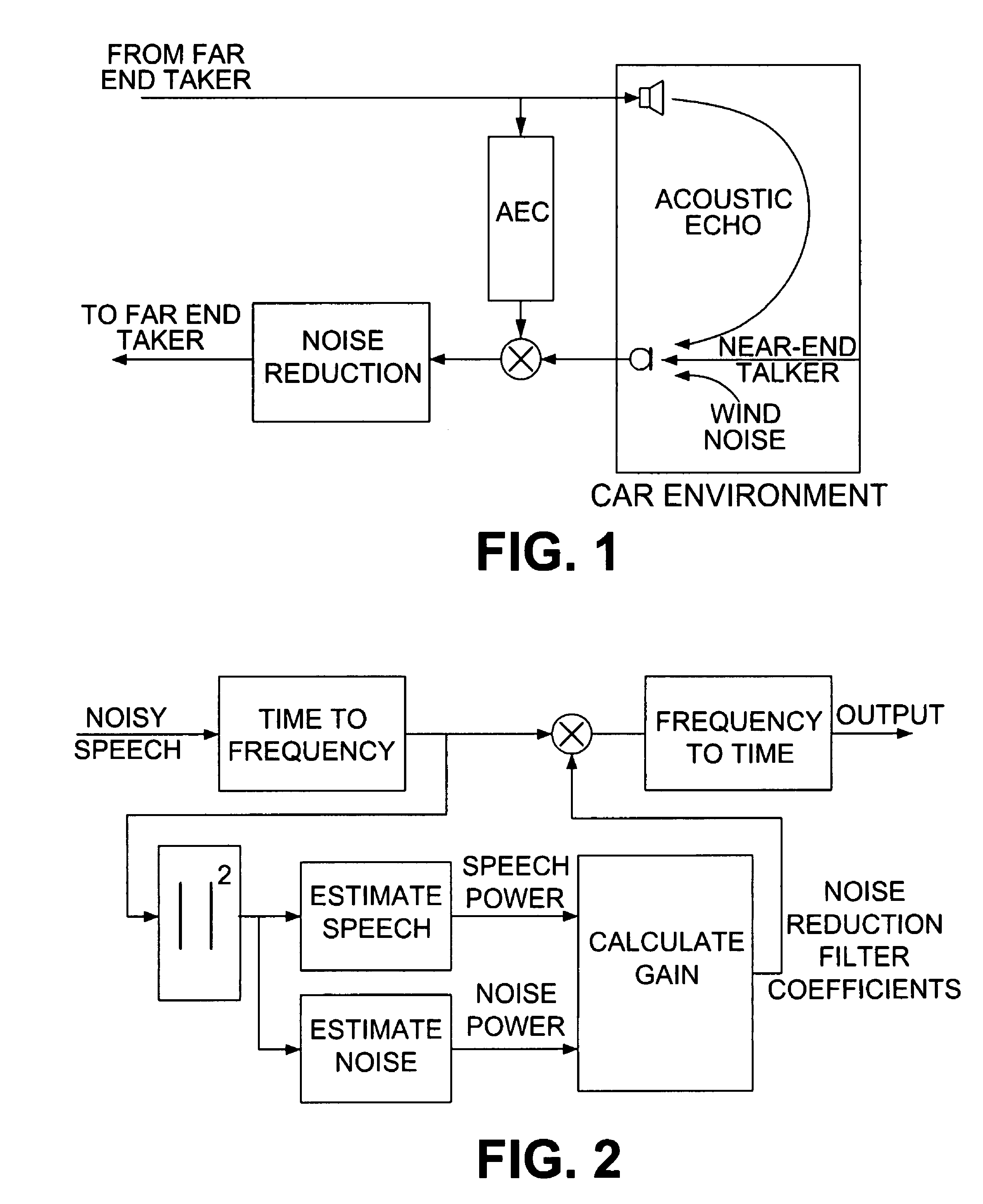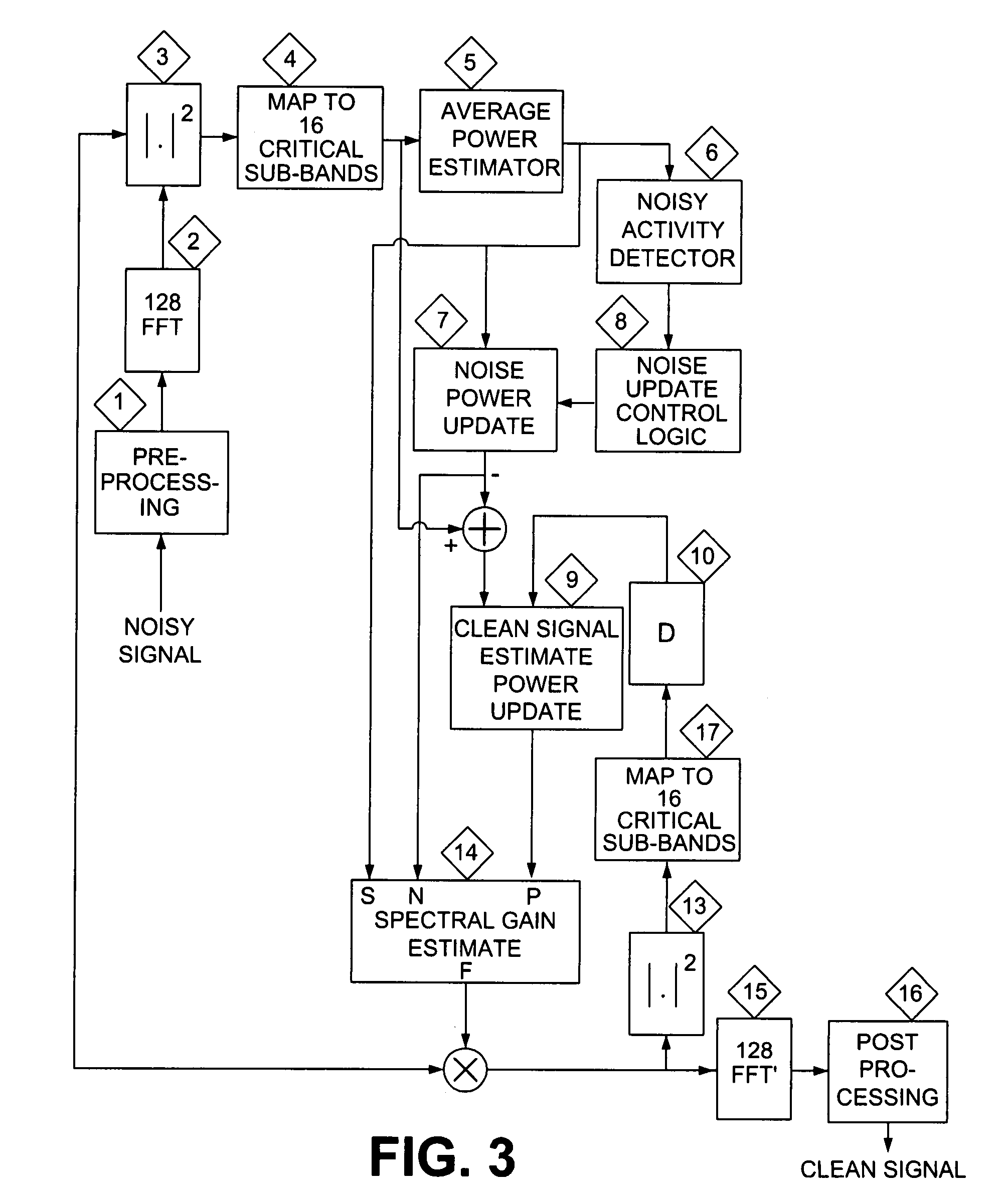Low complexity noise reduction method
a noise reduction and low complexity technology, applied in the field of voice communication systems, can solve the problems of spectral subtraction, high computational cost, and major impact on the perceived speech quality, and achieve the effects of low computational complexity, good subjective quality, and high performan
- Summary
- Abstract
- Description
- Claims
- Application Information
AI Technical Summary
Benefits of technology
Problems solved by technology
Method used
Image
Examples
Embodiment Construction
[0020]In the first stage of the process, the noisy speech signals are pre-processed to remove the low frequency artifacts. In the next stage the pre-processed signals are converted to frequency domain using an FFT block. Based on the outputs signal powers of the FFT block, 16 spectral subbands are created.
[0021]The average power at each subband is calculated and based on that, a noise-activity detector will detect portions of the signal that are mainly dominated by the noise. The output of the noise activity detector is used for updating noise power estimate. The ratio between the noise power and the signal power are used as an input to a look-up-table which calculates the appropriate gain for each subband and each data frame.
[0022]Those subbands that have a low signal-to-noise ratio will have calculated gains that are close to zero while for high signal-to-noise ratios, the calculated gains will be close to one. The gains calculated for all 16 subbands will be interpolated to match...
PUM
 Login to View More
Login to View More Abstract
Description
Claims
Application Information
 Login to View More
Login to View More - R&D
- Intellectual Property
- Life Sciences
- Materials
- Tech Scout
- Unparalleled Data Quality
- Higher Quality Content
- 60% Fewer Hallucinations
Browse by: Latest US Patents, China's latest patents, Technical Efficacy Thesaurus, Application Domain, Technology Topic, Popular Technical Reports.
© 2025 PatSnap. All rights reserved.Legal|Privacy policy|Modern Slavery Act Transparency Statement|Sitemap|About US| Contact US: help@patsnap.com



